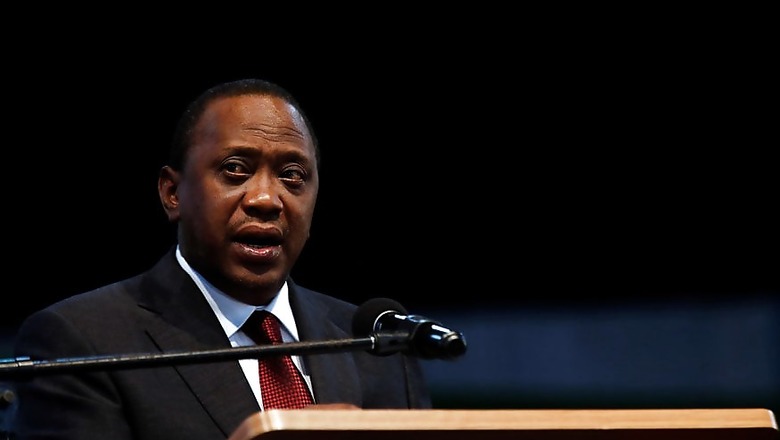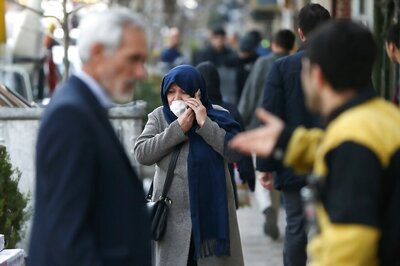
views
Nairobi: Kenyan President Uhuru Kenyatta was on Monday declared victor of the country's deeply divisive elections, taking 98 percent of the ballots cast in a poll boycotted by his rival Raila Odinga, sparking fears of further violence in flashpoint opposition strongholds.
Despite his crushing win, the turnout of just 38.8 percent among 19.6 million registered voters is set to raise questions about the credibility of an election that has plunged East Africa's most stable democracy into its worst crisis in a decade.
Independent Electoral and Boundaries Commission (IEBC) chairman Wafula Chebukati said Kenyatta had received 7,483,895 votes to Odinga's 73,228 -- less than one percent of votes cast -- in a sign the boycott had held.
A total of 7,616,217 cast ballots in Thursday's protest-hit election.
The vote was the chaotic climax of two months of political drama after the Supreme Court overturned Kenyatta's victory in August 8 polls over widespread irregularities and mismanagement by the IEBC.
Violent protests, the murder of an IEBC official and the resignation of another who fled the country condemning a flawed process, have seen the country lurch from crisis to crisis during the election period.
Chebukati -- who just before the election had called into doubt its credibility due to internal IEBC divisions and political interference -- said he was confident the poll had been "free, fair and credible".
Ahead of the announcement, security was stepped up in flashpoint areas in the west, in Nairobi's Mathare slum and its central business district, and also in the coastal city of Mombasa, a senior police source told AFP.
Shortly after the results were announced, demonstrators began burning tyres in the western city of Kisumu as well as in Nairobi's Kibera slum, AFP correspondents said.
While calm has reigned for the past 48 hours in the restive west of the country and some flashpoint Nairobi slums, the announcement is expect to fuel further anger and protests.
At least nine people have died since election day, many shot by police according to rights groups, taking the death toll since the first presidential election on August 8 to 49.
Odinga refused to take part in the re-run, accusing the IEBC of failing to make sufficient reforms to ensure it would not be flawed.
He called on his voters to stay away on election day. But in the west, many blocked polling stations, leading to violent clashes with police.
Plans to restage the vote in the western regions on Saturday were quickly called off after a second day of protests, over fears for the safety of polling staff.
And Chebukati decided Monday to abandon plans to reschedule the vote in 25 violence-hit constituencies where voting could not take place, estimating these would not affect the outcome.
Calls for calm
US Ambassador Robert Godec expressed concern over the recent clashes and called for "calm in the coming days".
"Leaders and politicians should clearly and publicly reject violence and work to keep the peace, and make every effort to ensure their supporters do so as well," he said in a statement. "We are deeply concerned by reports of excessive use of force by the police."
His words were echoed by Britain's Minister for Africa Rory Stewart who said he was "deeply concerned" the recent violence. "I urge security forces to exercise maximum restraint and call on protestors who are exercising their constitutional rights to do so peacefully," he said in a statement.
While the Supreme Court ruling was hailed as a chance to deepen democracy, the acrimonious bickering between Odinga and Kenyatta -- whose fathers were rivals before them -- has sharply divided a country where politics is already polarised along tribal lines.
The current political crisis is the worst since a 2007 vote sparked months of politically-driven ethnic violence that left 1,100 people dead.
While the dynamics of 2017's political crisis are very different, the memory of the bloodshed a decade ago is never far away.
On Sunday, Odinga continued to demand a new election within 90 days, vowing to stage a campaign of "civil disobedience".
Despite pulling out, Odinga's name was left on ballot papers.
This means he could again petition the Supreme Court to challenge the election, and observers fear further legal battles that will extend the uncertainty that has already hit east Africa's richest economy hard.



















Comments
0 comment